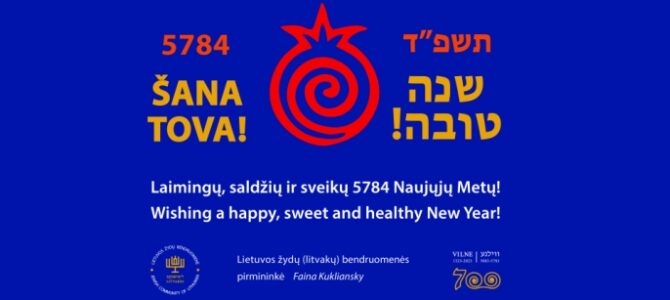

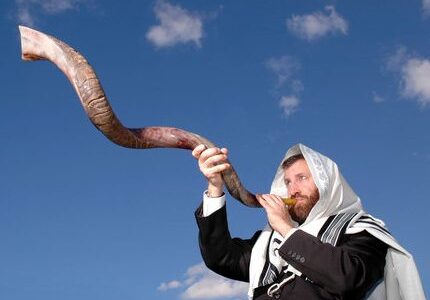
Rosh Hashana Fast Approaching
The Jewish New Year 5784, Rosh Hashana, is coming up quickly this Friday, September 15 on the Gregorian calendar, at sundown at 7:18 P.M. According to Jewish tradition, the first man Adam was created on the first day of the Jewish month of Tishrei, and, according to tradition, he was exiled from the Garden of Eden on the same day for disobeying God. Since then God has held court on humans every year on this day. The Creator makes decisions on this day about who is included in the Book of Life and who is not, and how the coming year will bring success for every person, so religious Jews spend the day praying for God’s favor and mercy.
The Vilnius Jewish Religious Community and the Lithuanian Jewish Community invite you to celebrate Rosh Hashana at the Choral Synagogue in Vilnius with us.
Program:
Friday, September 15
7:00 P.M. Rosh Hashana at the Choral Synagogue
Saturday, September 16
10:00 A.M. Shacharit
7:00 P.M. Mincha
8:30 P.M. Evening prayer service
Sunday, September 17
10:00 A.M. Shacharit
7:00 P.M. Mincha.
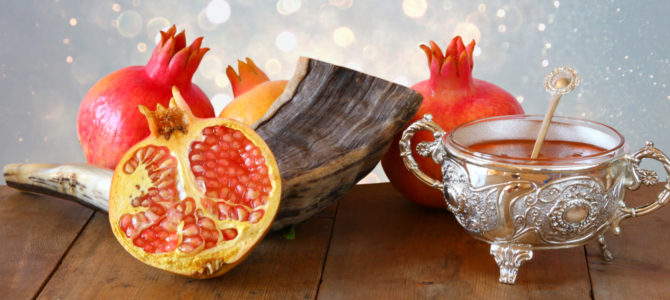
Invitation to Kabalat Shabat
The Lithuanian Jewish Community and Bnei Maskilim followers of Progresive Judaism invite you to a Kabalat Shabat ceremony and celebration of the eve of the Jewish New Year, 5784.
This warm, comfortable and moving gathering is a great entree to Rosh Hashana.
We will meet at 8:00 P.M. on Friday, September 15, in the hall on third floor of the Lithuanian Jewish Community in Vilnius.
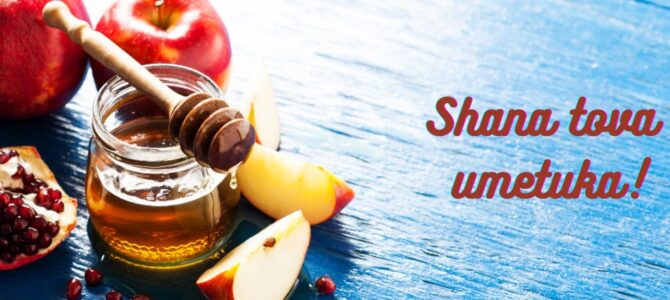
Let’s Celebrate Rosh Hashana Together
The Lithuanian Jewish Community greets you on the occasion of the upcoming Jewish New Year, Rosh Hashana, 5784, and invites you and your entire family to come celebrate with us starting at 4:00 P.M. on Saturday, September 16, at the newly renovated Hotel Conti located at Raugyklos no. 7 in Vilnius.
The program includes greetings, a performance by the Fayerlakh Jewish song and dance ensemble, holiday meal (you can choose a meat or fish dish during registration, another concert called Zingen Mir a Lidele in Yiddish with the sololists Rita Alterman, Mariya Dushkina, Michailas Jablonsky and Leonardas Zenkevičius, plus much more.
Tickets are 25 euros for adults and 10 euros for children aged 13 and under. To register or receive more information, send an email to zanas@sc.lzb.lt or call (+370) 678 81514 between 10:00 A.M. and 6:00 P.M. on weekdays.
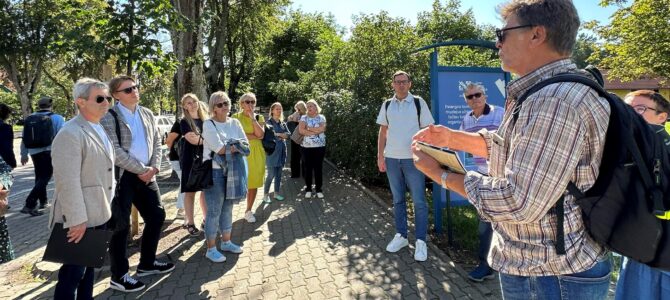
European Days of Jewish Culture in Palanga
On Thursday last week the Palanga Jewish Community invited the public and visitors to Lithuania’s main seaside resort town to a tour of Jewish sites there and a discussion of memory. The streets of the quaint town hold many stories and the old town synagogue there was a popular place for couples to get married, with brides and grooms arriving from all over Europe.
The walking tour demonstrated material heritage, and afterwards participants were treated to the Litvak culinary heritage in the form of the dish floimen tzimmes.
Pictures tell the full story.
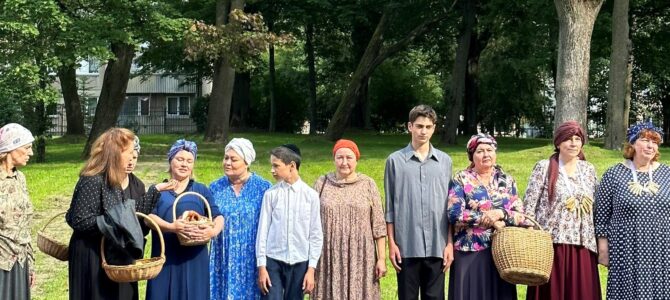
Historical Drama in Klaipėda
Klaipėda residents were treated to fictional historical plays in situ and Rosh Hashana treats as part of European Days of Jewish Culture events in the Lithuanian port city September 10. A series of skits were performed in the Old Town by the Šatil theater troupe depicting Jewish experience, daily life, triumphs and misfortunes in the interwar period. This was followed by a presentation of Jewish folklore at the Puppet Theater in Klaipėda, formerly known as Memel under East Prussian rule.
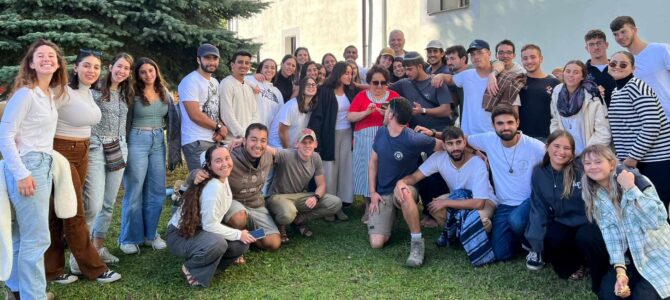
European Days of Jewish Culture in Ukmergė
The Lithuanian Jewish Community was gratified to see so many young people attend European Days of Jewish Culture events held in Ukmergė (Vilkomir) last Tuesday. A large number of local residents and a delegation of 62 students from Israel attended events including a reading of the names of Holocaust victims from the area.
The Lithuanian town where about half of all households spoke Yiddish until World War II had multiple working synagogues, a Jewish hospital, Jewish schools and other Jewish institutions. Ukmergė Jewish Community chairman Artūras Taicas introduced local Holocaust survivor Elena Jakiševa, said to be the only Jew from Vilkomir to survive the Holocaust, to participants who were keen to hear everything she had to say. Chairman Taicas said it was important for the current generation of young people to learn from living witnesses without distortion and suppression.
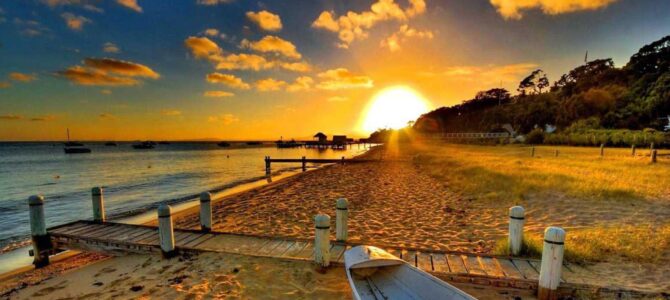
Sabbath Times
The Sabbath begins at 7:36 P.M. on Friday, September 8, and concludes at 8:47 P.M. on Saturday in the Vilnius region.

Panevėžys Jewish Community Invites You to Celebrate Rosh Hashana
The Panevėžys Jewish Community is proposing a picnic in the Community’s courtyard as part of celebrations of the Jewish New Year, 5784, located at Ramygalos street no. 18 in Panevėžys. The plan is to meet at 4:00 P.M. on Sunday, September 17, at the Panevėžys Jewish Community. If the weather is good the picnic will take place outside with holiday treats, food, gifts for children and Jewish calendars for members. If the weather isn’t good events will move inside. The event is free and open to the general public.
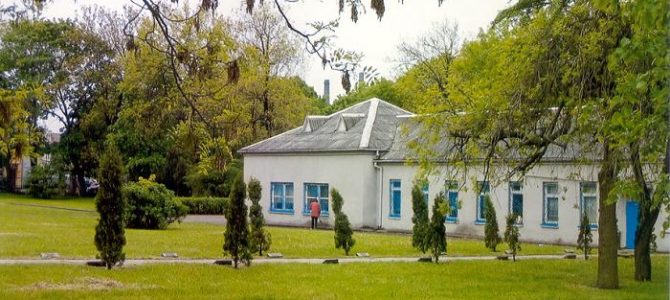
European Days of Jewish Culture in Klaipėda
The Klaipėda Jewish Community will present a program of events to celebrate European Days of Jewish Culture beginning Sunday afternoon on September 10 at the Klaipėda Jewish Community located at Sinagogų street no. 13 in the port city.
The Shtatil theater troupe is to perform a play about Jewish stories and events in Klaipėda city and district, formerly known under East Prussian rule as Memel and Memelland (or Memelgebiet), respectively. The performance won’t be confined to the theater: players promise a tour through the city to illustrate the fictional stories about Jewish life which could have happened there.
The play concludes at the Klaipėda Puppet Theater at Turgaus street no. 9, followed there by a presentation of more Jewish stories, namely fairy tales, for the whole family, narrated by Klaipėda Jewish Theater director Nerijus Gedminas and actors.
#EDJC2023 #Atmintis #Memory #AEPJ #UNESCO #Lietuvos žydų bendruomenė ##KlaiėdosŽydųBendromenė #OurCommunities
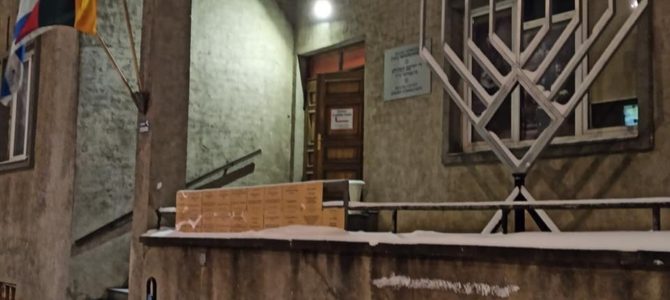
Open House at the Šiauliai Regional Jewish Community
The Šiauliai Regional Jewish Community invites the public to an open house this Friday as part of the Šiauliai Days currently being celebrated. This is an opportunity to learn more about what the Community does and Šiauliai (Shavl) Jewish traditions, and to tour the interior as well as the museum, to get to know members and to view the exhibition “Wooden Synagogues of Lithuania.”
Time: 11:00 P.M., Friday, August 8
Location: Šiauliai Regional Jewish Community, Višinskio street no. 24, Šiauliai
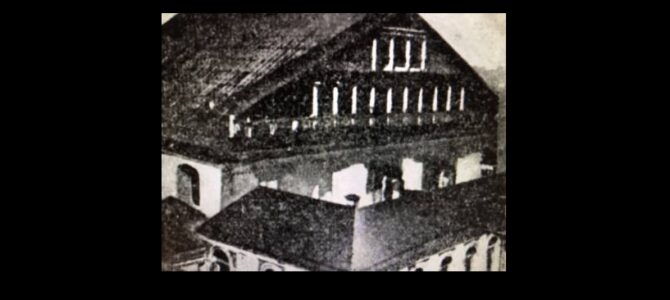
European Days of Jewish Culture in Vilkomir
After a great start in Vilnius, the European Days of Jewish Culture move on to Vilkomir (Ukmergė) with a series of interesting and perhaps moving events. The two-day program promises to enrich the public’s knowledge of Jewish culture and hopefully to teach them about the rich Jewish heritage inherent in their local area.
At 2:00 P.M. on Thursday, September 7, there will be a reading of the names of Holocaust victims at the location where the Great Synagogue once stood in Vilkomir (Vienuolyno street no. 2).
At 7:00 P.M. on Thursday, September 7, the Ukmergė Tolerance Center (Vasario 16-osios street no. 11) will open an exhibit of photography by Jurga Jackevičiūtė called “Įmelsta žemė” [Pierced Land] including a presentation by the photographer of her trips to Jerusalem.
At 5:00 P.M. on Friday, September 8, the Ukmergė Tolerance Center will screen a documentary film by Loic Salfati called “Secrets of the Great Synagogue of Vilnius” which includes documented historical facts, a large number of interviews and findings from archaeological digs at the site of the former Grand Synagogue in 2019 and 2021 to tell the hitherto little-known true history of the synagogue which mostly survived the Holocaust and World War II only to be razed in the 1950s. There will be a discussion with the French filmmaker following the screening.
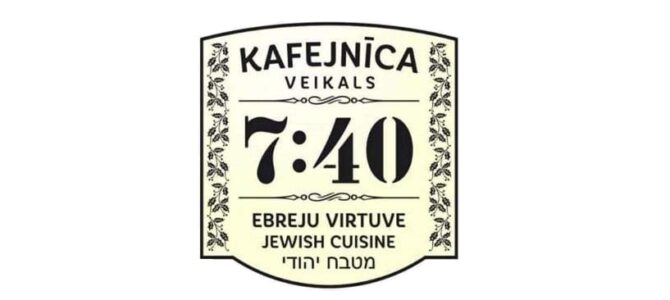
Šiauliai Jewish Community Hosting Kosher Food Preparation Class
The Šiauliai Jewish Community is hosting a kosher food-making class at the Šiauliai Jewish Community at 6:00 P.M. on Tuesday, September 5. Tatjana Bekermeister is the manager of the 7:40 kosher café and will be teaching the class. Everyone is welcome and those who attend will receive an edible surprise.
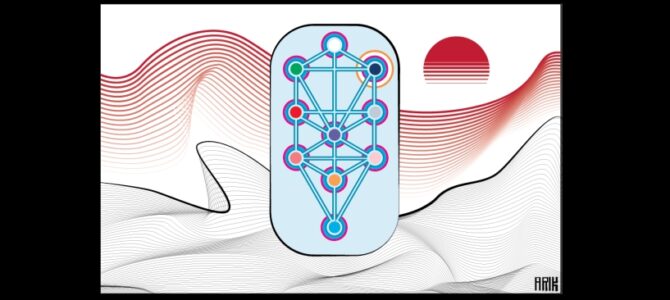
Sabbath Times
The Sabbath begins at 8:08 P.M. on Friday, August 25, and concludes at 9:25 P.M. on Saturday in the Vilnius region.
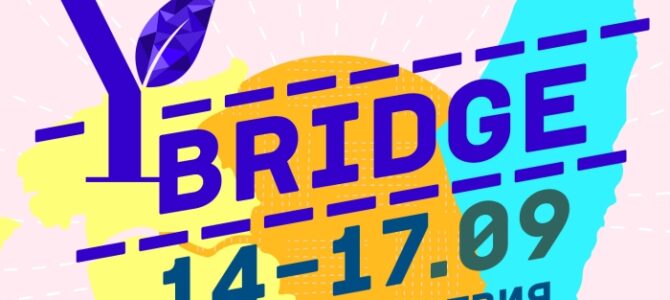
Youth Seminar in Latvia
People aged 18 to 40 are invited to attend a seminar for participants from the Baltic states and the Ukraine from September 14 to 17. There is also the possibility for children aged 6 to 12 to attend as well.
The seminar will include a Jewish New Year/Rosh Hashana celebration and participants will learn about European social programs and spend evenings with the Erasmus+ program group.
The seminar will be held at the seaside Minhauzena Unda Hotel.
Register here: https://forms.gle/h5K55tfGKziBPpca8
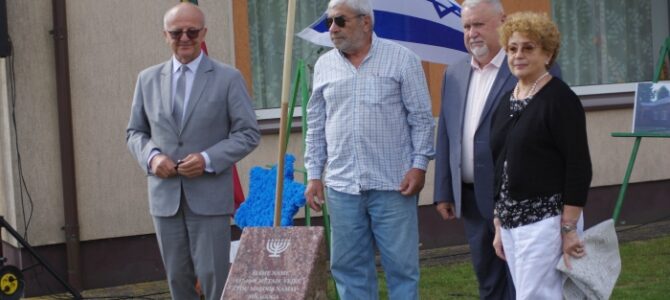
Jewish Community of Balbirishok Remembered
A stone stele marking the site of the synagogue which once served the Jewish community in Balbirishok (Balbieriškis) was unveiled in the small Lithuanian town last week.
Attending the unveiling ceremony were Lithuanian Jewish Community chairwoman Faina Kukliansky, Kaunas Jewish Community chairman Gercas Žakas, US embassy chief of mission William Kendrick, Israeli ambassador to Lithuania Hadas Wittenberg Silverstein, educational program coordinator of the International Commission for Assessing the Crimes of the Nazi and Soviet Occupational Regimes in Lithuania Ingrida Vilkienė, representatives of the Prienai regional administration and the Balbieriškis aldermanship and a large contingent of local residents and students from the Balbieriškis primary school’s Tolerance Center.
LJC chairwoman Kukliansky welcomed the audience and said she was impressed and pleased the truly significant role played by Litvaks in the history of the town was being remembered and appreciated.
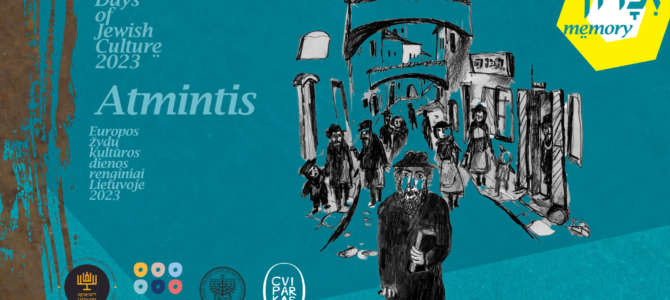
European Day of Jewish Culture Events in Vilnius
September 3rd is coming. The first Sunday in autumn, the day the Lithuanian Jewish Community will again celebrate the European Day of Jewish Culture, a day the Community has celebrated for a decade now. As in previous years, all events across Europe to celebrate the day are modeled on a general theme. This year it’s memory. This topic is like a bridge leading to the Jewish cultural legacy which remains to a great extent unknown by the wider population. #Atmintis or Memory doesn’t end on the first Sunday in September, of course, and in September and October the Lithuanian Jewish Community will hold and coordinate events throughout Lithuania.
Below you’ll find the events program for September 3, all of which are free and open to everyone.
Register here: https://bit.ly/459c4nZ
#EŽKD2023 #EDJC2023 #Atmintis #AEPJ #LietuvosŽydų(litvakų)Bendruomenė #CviParkas #BeigeliųKrautuvėlė Kultūros Paveldo Departamentas Tautinių mažumų departamentas prie Lietuvos Respublikos Vyriausybės #mūsųbendruomenės #OurCommunities
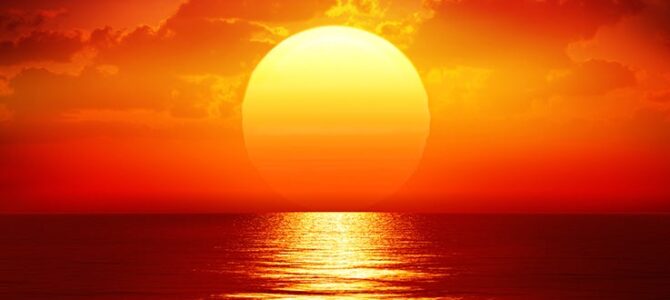
Sabbath Times
The Sabbath begins at 8:27 P.M. on Friday, August 18, and concludes at 9:44 P.M. on Saturday in the Vilnius region.
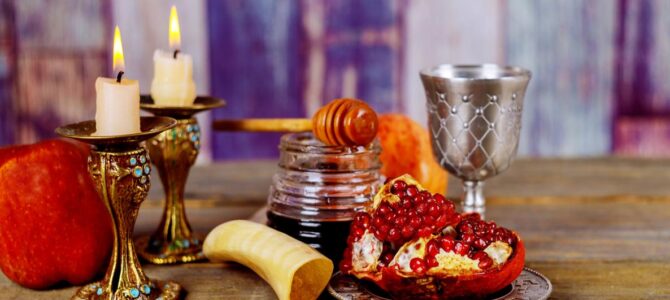
Rosh Hashana Reminder
Rosh Hashana is coming up on September 15 and 16 and we hope you decide to usher in the new year 5784 with us. Stay tuned for more information about events and celebrations.
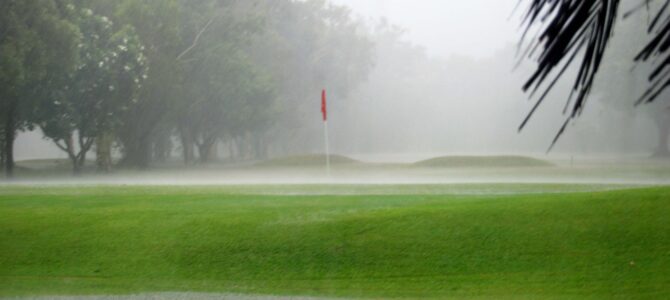
Sabbath Times
The Sabbath begins at 8:42 P.M. on Friday, August 11, and concludes at 10:03 P.M. on Saturday in the Vilnius region.

